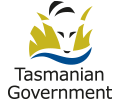7.1 Communications planning and evaluation
Principles
Communication is an integral part of the development, management and delivery of government policies, programs and services. As such, communication requirements should be fully accounted for when budgeting for new initiatives.
Communications is a shared responsibility that requires the support, co-operation and interaction of various personnel throughout an agency (see section 9 - Roles and responsibilities.
Communications planning – through the development of a communications strategy or plan - identifies the communication objectives of a project, the means by which they can be achieved, and methods of monitoring and evaluation. Communications planning also considers any community engagement and collaboration required, as identified in the project planning process.
Agency collaboration
The Tasmanian Government Approach to Collaboration provides a framework to help government agencies work better together on complex policy and service delivery issues. It identifies critical factors for collaborative projects, including leadership, trust, shared aims, accountability, information sharing and communication.
Cabinet submissions
It is particularly important that communication issues are considered in drafting and developing Cabinet submissions likely to generate public interest.
The inclusion of a communications strategy with Cabinet Minutes provides Ministers and Cabinet with a basic outline of how agencies intend to communicate and engage on a particular decision. It also provides evidence that communication issues have been properly considered.
The communications strategy will also be attached to the signed Cabinet decision communicated to the responsible Heads of Agency.
Policy requirements
Agencies must:
- ensure all Cabinet Minutes involving policy changes, public announcements, new initiatives and major decisions include a communications strategy
- ensure the Cabinet Minute is approved by the agency communications manager.
It is recommended that:
- a communications strategy or plan be developed at the initiation of a project
- qualitative and quantitative research (including concept testing) be used to inform the development of a communications strategy (see section 8.13 Social and market research)
- agencies seek the advice of the Government Communications Office on issues and themes that may have whole-of-government implications that require co-ordination of communications planning across multiple agencies
- communications activities be monitored to allow improvements or adjustments to be made as needed during implementation
- communications strategies are formally evaluated to assess their effectiveness (including cost-effectiveness)
- when using surveys for evaluation purposes, the Tasmanian Government is clearly identified as the source of the survey, a contact point for questions about the survey is provided and any personal or confidential information collected as part of the survey is adequately protected.
